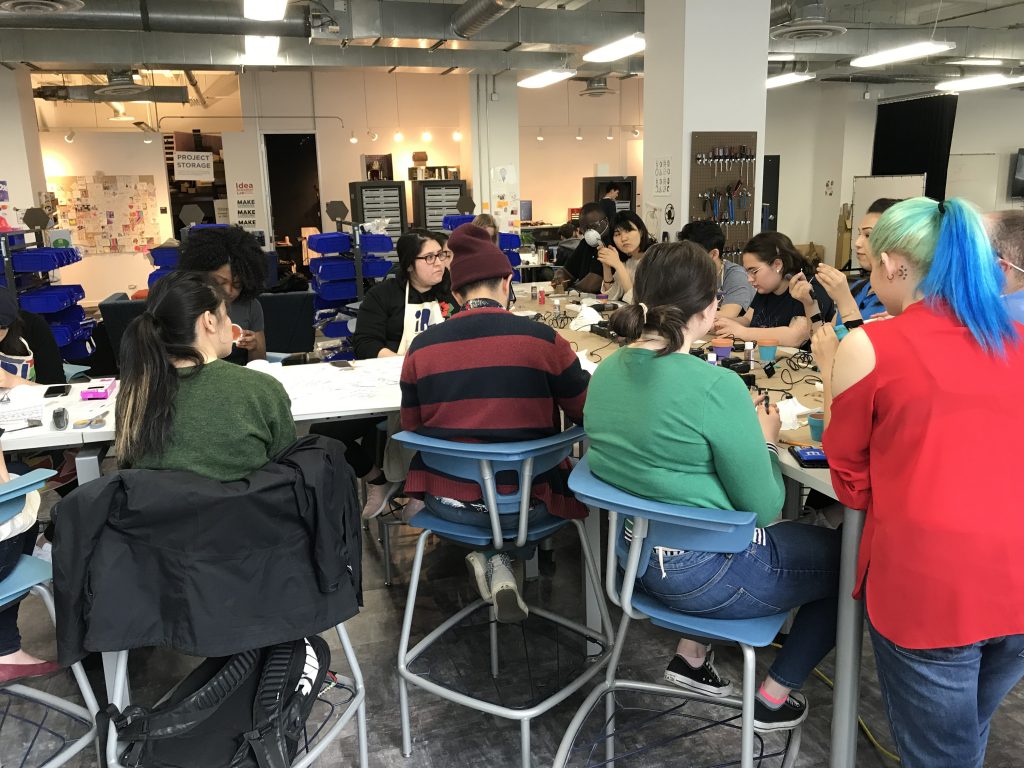- How Tinkering and “Problem Making” Are Shaking Up Higher Education – I wrote this article for Make a few years back, but think it still holds up as a good reference for the educational/curricular side of making in higher ed.
- I put together a podcast series that interviews makers and creators from all stripes. It’s called This Should Work*.
- Tim Ingold’s Making: Anthropology, Archaeology, Art and Architecture has had a strong influence about how I think and create when it comes to community.
- Stanford’s d.school put out a book called Make Space, which is a really good crash course/index on different things you can build to facilitate creative collaboration in spaces like makerspaces.
- I went to the very first International Symposium on Academic Makerspaces a few years back, and thoroughly enjoyed it. Since then, I’ve kept an eye on the whitepapers that come out of the conference, and have collected them all into Google Drive. You can find them here.
- MakerEd put out a “how to build a makerspace” playbook several years ago that’s still a pretty good reference. The only caveat I would put in there is that every makerspace is different, and you should primarily listen to your community when it comes to what kind of things you should buy to support them.
- I cannot stress enough how influential Object Oriented Ontology and Speculative Realism has been on my philosophy about making. Particularly, the ideas around objects, their qualities, perception, and the nature of things (including people). Some good literature in that regard: Graham Harman’s Object Oriented Ontology and Speculative Realism, Ian Bogost’s Play Anything and Alien Phenomenology, Ian Hodder’s Entangled, and the (surprisingly good) fictional book Ventus.
Monday Musing on Making Makerspaces – 3/6/23

I often get asked: What are some resources where I can learn about makerspaces in higher education, in my K-12 institution, or just in general? So! Here’s a short toolkit for educational makerspace leaders that includes list of things I’ve collected, written about, and read over the years that I’ve found particularly influential:
